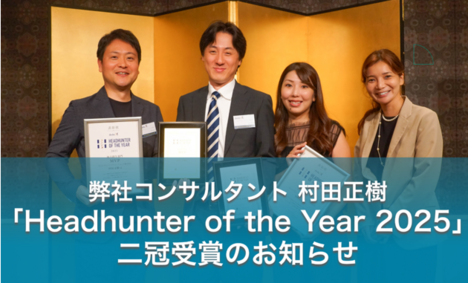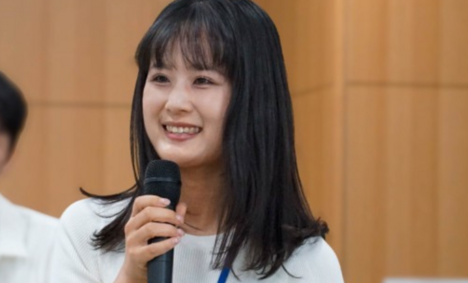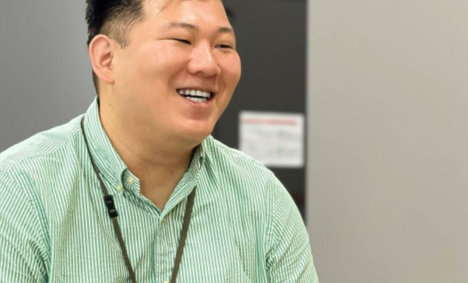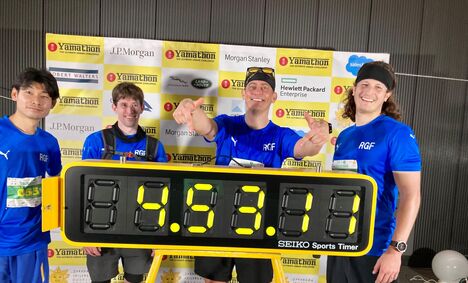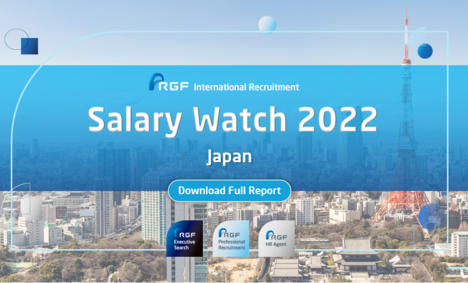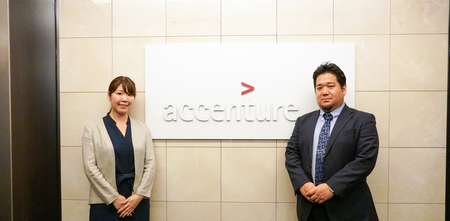
Accenture is one of the world’s largest consulting firms that operates from over 200 cities in 52 countries. Last time, we spoke with a Managing Director of Product and Research Development (PRD), Mr. Hiraji, who explained to us about Accenture as a global company and its efforts in the finance sector. Read the last article here.
This time, we spoke with a Senior Manager of Management Consulting (MC) in PRD, Mr. Atsushi. He talked to us about his own career, what it takes to succeed in a global company, and what he looks for in mid-career professionals during job interviews.
Thank you very much for taking the time to speak with us today. Could you briefly tell us about yourself?
Accenture is the second company I worked for. At my first job, I worked as an SAP consultant. At that time, I was working under several companies and was not in charge of big projects.
Nevertheless, it was a good experience because I was able to see the working style of each company and the differences in corporate cultures.
When I started to think about my career after three years of working there, I realized that I wanted more responsibility in my role, ideally take on important projects.
This is why I switched to Accenture.
When changing jobs, did you focus on the consulting industry?
Yes, I did. Back then, I thought of doing something other than working on systems-related business so I focused my search on general consulting firms.
Since I had worked with Accenture at my first job and saw firsthand the work ethic as well as the work culture of that company, I felt that their talent pool impressed me more compared to those from the other consulting companies I have worked with.
Ultimately, I chose Accenture because I wanted to work alongside notably talented people like them.
I can see that your own experiences were important factors in your decision. What have you done since joining Accenture?
For a while, I was involved in several SAP-related projects that allowed me to make use of my previous work experience.
However, I changed my job because I wanted to gear away from systems related business in the future so I transferred from the technology department to my current department several years ago. Now, I am in charge of the Global Shared Service Center of the Accounting and Finance Division.
Generally speaking, there’s this assumption that consultants handle new projects and clients every three to six months.
For me, the time I spend with a client goes beyond that. Even though it has been nine years since I joined Accenture, my current client is only just the third client I’ve worked with.
Does that mean the relationship with the client will continue even after a new project begins?
Yes, it does. With a client I was in charge of for four years, I received many projects – in fact, one after the other – I oversaw domestic SAP planning, supported SAP development, and planned the expansion of overseas subsidiaries.
After that, I stopped working with systems for a while and took part in BPR to improve management efficiency in the Administrative Department.
If you work with a client extensively, you can definitely develop a strong relationship with them.
On the other hand, if you work on many brief projects, you can experience and learn a wide variety of things, so either way, both are beneficial to your professional growth.
At Accenture, employees who have been working long-term with the same client, such as myself, have a say on whether we’ll work on other projects or with other clients.
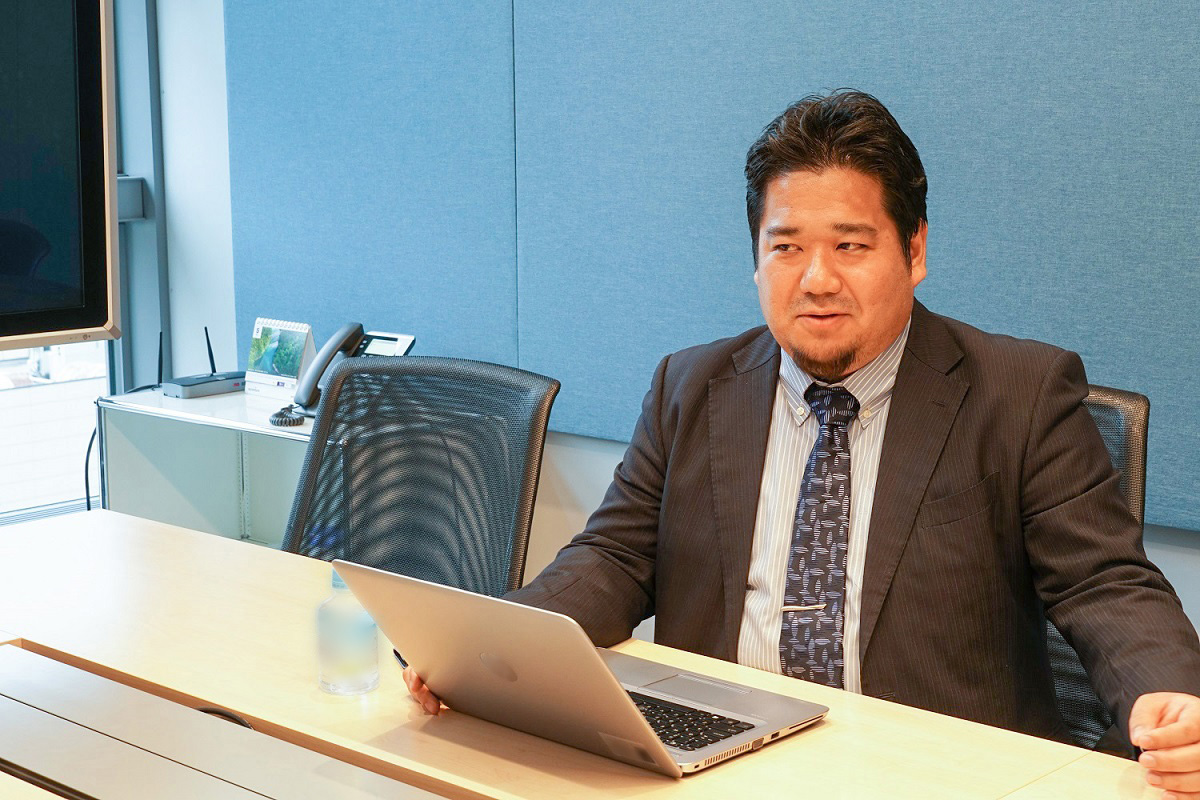
I’ve heard that there are more global projects because more clients want to expand their business overseas, especially in the manufacturing sector. Is there a common denominator why Japanese companies struggle with globalization?
If the definition of a globalizing company is "an organization that develops a business on a global scale and efficiently generates profit," I believe that Japanese companies have a shortage of globally competitive leaders who can effectively promote and properly implement initiatives from the head office.
Slightly going off-topic, but the fact is that multinational companies headquartered in western countries have greatly increased their corporate value over the last 30 years.
Compared to this, domestic Japanese companies have steadily grown, but their pace is nowhere near the speed of other international companies.
There is an Accenture report called “Globalization Pathways," which provides details about the process of a successfully globalized company.
According to this report, it became clear that what allowed foreign companies to succeed globally and grow rapidly were the six common pathways they've decided to concentrate on.
These pathways are: “Sales & Marketing,” “R&D,” “Supply Chain,” “Finance,” “Talent & Organization,” and “IT.” (For more details: https://www.accenture.com/jp-ja/insight-globalization-pathways)
If domestic companies want to scale their business abroad, they must first establish offices or factories around the world, which is the first step towards globalization.
After this, companies must then sort out what should be centrally managed by headquarters and what should be localized in each area.
Should you fail to execute this step, you cannot expect to develop further.
I think that while overseas companies are successfully performing the second step, which is to reconfigure their business operations and functions locally, unfortunately, the growth of new overseas branches established by Japanese companies is stifled due primarily to the lack of globally competitive leaders.
Even my previous client, which has expanded their business globally, had initially run their business overseas under the stance that “what happens overseas is handled overseas.” It was only until recently that I received a request to reevaluate their regional business operations. I then advised them to emphasize the importance of standardizing operations to stay competitive in the region.
I saw that as globally successful companies aimed for further growth, new obstacles would always arise and many companies only move to the next step if they overcome the existing issues first.
What is the company-wide transformation offered by Accenture?
This relates to the discussion about “Globalization Pathways,” but if you strive to operate a highly efficient global company, naturally, it is better to have a centralized IT system that is operated by a centralized IT operations team.
It should be noted, however, that if you improve one single aspect of the Six Pathways mentioned earlier, optimal growth will not be fully attained unless all six have been covered.
Accenture’s company-wide transformation provides clients with advice to ascertain their current standing and their immediate vision for the company, as well as provide the necessary steps and initiatives they need to help usher them towards the future they’ve envisioned for themselves.
I would like to ask you about the team you are currently a part of. What kind of work are you doing as a senior manager?
I am mainly in charge of managing the client’s projects and reporting the progress, problems, and all of the risks involved to the client.
However, I feel that my primary role is to control the quality and assess the risks associated with the entire project.
After I became a manager, I made sure to concentrate on delegating tasks more so I can invest my time in evaluating each members' contribution to all of our projects.
In hope of creating a comfortable and efficient work environment, I also assist my team by taking on a portion of the projects’ tasks and handling tasks that can be better decided and communicated by myself.
What do you look for in a team member?
I think I look for people who have a certain level of commitment to finish any work that’s been assigned to them.
People who strive to get their work done efficiently will be a great asset in any project and as a result, they will be evaluated positively and promoted early.
Since each individual decides when and how a project is completed, it is very helpful when someone goes beyond what was expected of them. I recognize these extra efforts and evaluate the team members accordingly.
One characteristic of successful Accenture employees is that they produce results that exceed expectations. Is there anything else?
I would perhaps say that another characteristic is having the ability to properly ask for help.
I think that people who join Accenture during the middle of their career tend to keep their problems to themselves.
As a result, their progress stops because they can’t find a solution to their problem and unfortunately puts the project to a halt.
On the other hand, people who are able to ask for help tend to resolve difficulties quicker and get faster results.
Since some people feel a huge sense of responsibility, they may feel the need to solve the problem by themselves but having the ability to seek the advice of others is a truly important characteristic to become a successful employee at Accenture.
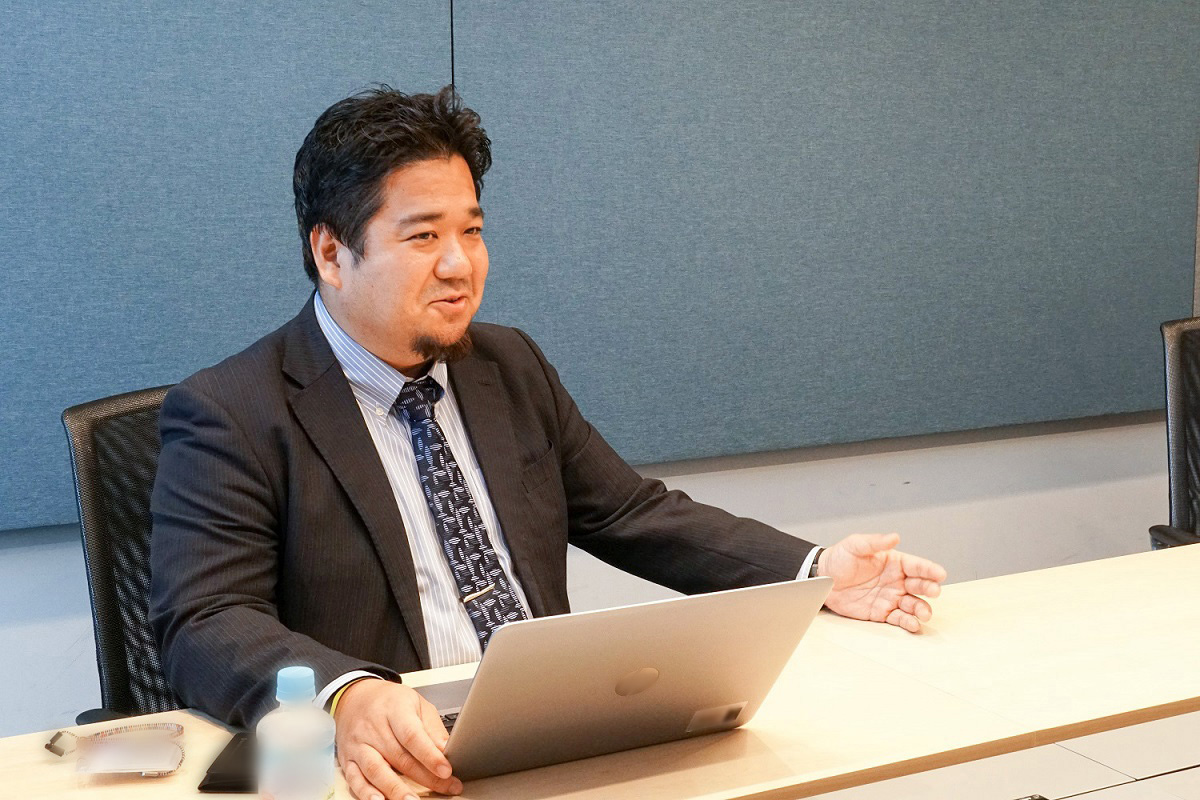
I think that many people join Accenture during the middle of their career. Among them are mid-career joiners who switched to Accenture from non-consulting companies. What are some things they struggle with at first?
Recently, I had the opportunity to talk to a person who came from a non-consulting company and he said that they initially struggled with the way Accenture approached tasks.
He explained that at his previous workplace, the bosses gave out detailed instructions and the employees simply followed those instructions.
However, at his new workplace, at Accenture, his first project came with broadly-stated instructions and he believed that he would receive further instructions later on.
He recalled that he got in trouble for not asking questions.
This connects to our previous discussion about commitment.
Instead of being passive and waiting for instructions, having the initiative to find new tasks on top of finishing the necessary work, is a trait that is lauded at Accenture.
He also mentioned that because his previous work did not involve projects like Accenture’s, it took some time for him to get used to breaking down tasks, assigning deadlines to each task, and thinking of alternatives when a task is not completed.
Do you mean that each Accenture employee produced results at their own pace?
Exactly. Unlike a non-consulting company, the contract states that Accenture must produce results within a fixed timeframe, so I think it is natural for this to happen.
In order to produce results on a tight schedule, each individual must know how a task is connected to a project and how the task can affect the project as a whole.
After understanding this, one must continuously be aware of the tasks’ importance and continue to be active in the entire process, instead of waiting for instructions.
Because this is merely a problem of familiarity with the work, I don’t think people who are switching to Accenture from non-consulting companies would need to worry too much.
You have interviewed many candidates. What do you look for when you conduct interviews?
I mainly look at whether the individual has the energy and motivation to get work done, is enthusiastic to take on tasks regardless of experience, and has the ability to adapt to changing environments.
I make my final decision after listening to their attitudes towards work and seeing whether they can envision themselves taking on big projects.
Which aspect do you focus on when hiring consultants, their potential to succeed at their role or actual knowledge and experience to do the job?
It varies depending on the position.
If a candidate is applying for a staff-level position, that candidate is evaluated by how well the individual fits the role as a consultant rather than their skills or experience.
Some motivated candidates who came from non-consulting companies but have put in the effort to get to know our business, can catch up despite the lack of experience – and we have seen this happen a lot.
When you are applying for the position of manager, your responsibility is to keep the projects going as a project manager.
That’s why in addition to aptitude, we also look at the candidate’s degree of work knowledge and experience in order to see how much an individual can contribute after joining the company.
Lastly, could you give any advice to those who are thinking of changing jobs?
For those who feel tired of their repetitive work and feel that they are lacking something from their current work, I would like you to challenge yourself and try working in the consulting industry.
The industry is constantly changing and is very stimulating, so I believe it is a very good environment if you're looking to break your routine work.
Above all, Accenture covers all consulting themes across three axes: industries, businesses, and solutions. With lots of global projects, there is almost nothing you cannot do at this company.
Also, it is an environment where you’re allowed to do what you want to do and if you are interested in other things, the company will allow you to switch to another department.
As mentioned, there are a wide range of themes in consulting and you can choose to do what you want to do.
For these reasons, I believe that living an enjoyable work life all depends on you.
If you have the desire to build your career in a certain way, are you able to do this at Accenture?
Yes. Even if you want to challenge yourself by trying an entirely new area where you have no experience, the people around you will support you as long as you are determined to learn.
I believe that this is a very unique industry. We are making a living while working with clients and helping them grow.
We are able to grow as individuals as well, all while working in an area that interests us. I don't think you can find anything like this in any other industry – only in the consulting industry.
Thank you very much.
Interviewer: Maiko Tsuji
Created by: RGF Professional Recruitment Japan Marketing Team

Working at a global company has many advantages, not only for those who want to work globally and those who want to make use of their language skills, but also for people who strive to Unleash their Potential seek their own potential and have a healthy work-life balance.
RGF Professional Recruitment Japan supports the recruitment hiring activities of many of the top domestic and foreign capital companies in Japan. Various excellent companies including foreign and Japanese global companies located in Japan. Therefore, as a result, we can introduce the best career options for each person.to suite all types of career profile.
If you want to work in a global environment or globally, want to work in a place where you can perform more, or want toto a higher level and expand your career options in the future, please contact us. Our experienced consultants will do their best to support your career growth.


